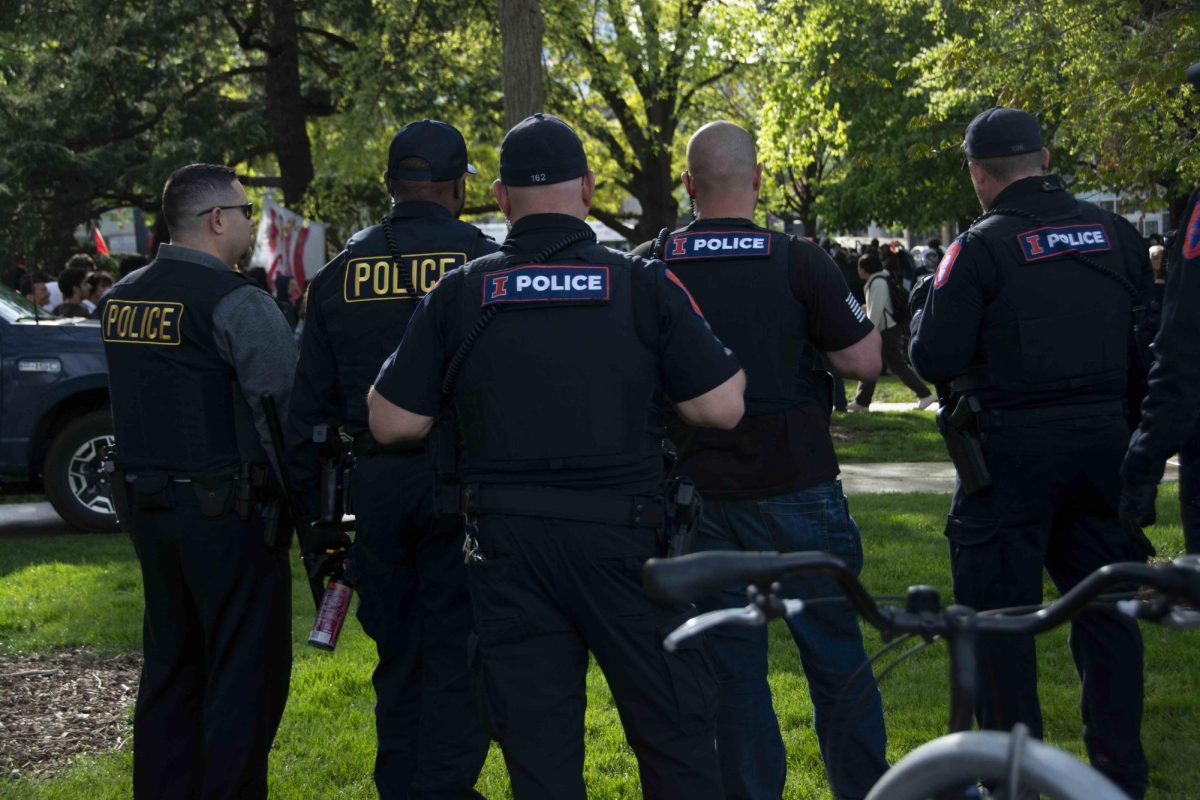A civil suit that was filed by the mother of Jeshaun Manning-Carter, the teen that was present during the fatal shooting of Kiwane Carrington in October 2009, alleges that Champaign Police Chief RT Finney was responsible for the shooting.
Carrington and Manning-Carter were both at 906 W. Vine St., in Champaign, when Finney and Norbits responded to a burglary call at that address.
According to the allegations made by Manning-Carter, Finney allegedly pushed Carrington backward to a seated position when Carrington approached before firing the shot.
According to an investigation released by the state’s attorney, a physical struggle between Carrington and Officer Daniel Norbits ensued, which led to the officer accidentally discharging his firearm and shooting the boy.
Manning-Carter is suing the city of Champaign for intentional infliction of emotional distress. He is also suing Finney for two counts of intentional infliction of emotional distress.
Get The Daily Illini in your inbox!
According to a press release, City Attorney Fred Stavins said the city will defend the case “vigorously.”
“There has never been a shred of evidence that suggests Chief Finney was the shooter,” Stavins said. “All the physical evidence, including a test of Chief Finney’s gun, contradict these allegations.”
Trisha Crowley, deputy city attorney, said the allegations are untrue. She said the claim that Finney was responsible for the shooting has no substance to it.
Crowley did not want to speculate about the difficulty level in handling this case and said that it is still early to make judgement calls about how it will play out in court.
Champaign Mayor Jerry Schweighart said he has not read the court documents, but from what he heard, there is no evidence to suggest that some of the claims are true.
Representatives for Manning-Carter filed the civil suit right before the county’s deadline, which has led some involved with the case to speculate as to why it has been brought this late in the process.
Alfred Ivy, attorney for Manning-Carter, said the filing deadline had nothing to do with the timing of the suit, since he has known about the allegations since November when he began representing his client. He said the reason they did not pursue a civil suit earlier was because he did not want it to interfere with the outcome of a criminal suit Manning-Carter was already a part of.
“We don’t open two cans of worms at the same time,” Ivy said.
He added that being involved in a civil suit at the same time he was fighting a criminal case may have compromised the results of the civil case.
Ivy also said that Manning-Carter became increasingly frustrated and reclusive during the course of the criminal case which concluded in April of this year, and attributed this withdrawal to why the suit was filed at this time.
“He didn’t want to talk; there was a concern at one point that he wouldn’t deal with it all,” he said.
Ivy said Manning-Carter finally feels able to discuss what he believes really happened on Oct. 9, 2009. Ivy said he believes his client’s allegations because he has been consistent.
“Right now I think we have a young man who believes he knows what he saw,” Ivy said. “I don’t have to have been there. He’s been consistent. I won’t say I didn’t question him or second guess him, but I wont tell him what the truth is.”
Ivy said his goal for Manning-Carter is to have some closure and healing no matter what happens, but he believes that Manning-Carter wants to expose what he believes to be the truth.
He added that Carrington’s death has taken huge toll on his life, and he is no longer the “bright eyed, bushy-tailed person of youth” he was before.
“I think he wants his life back. I think that’s what I would want,” Ivy said.
Colleen Vest contributed to this report.




